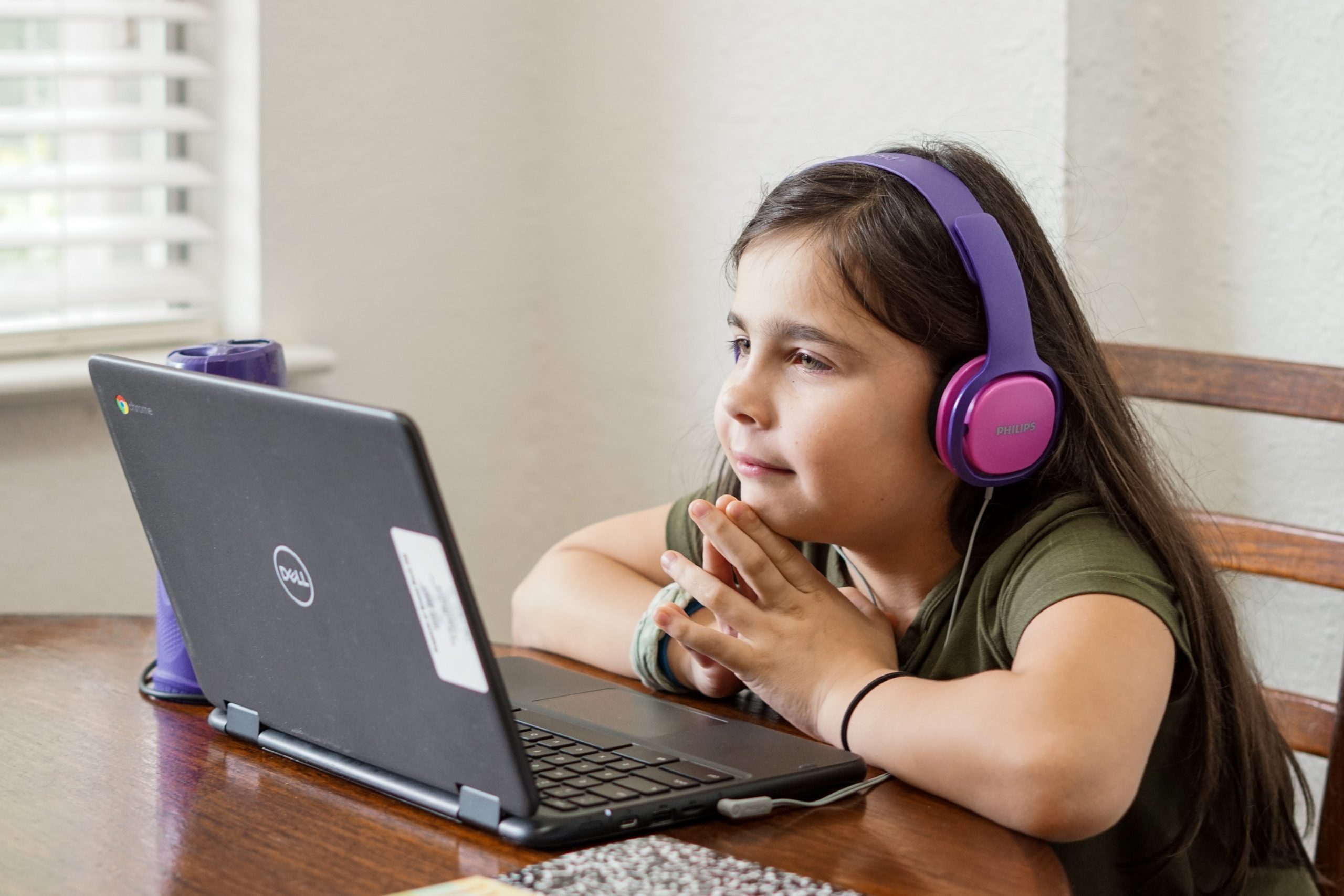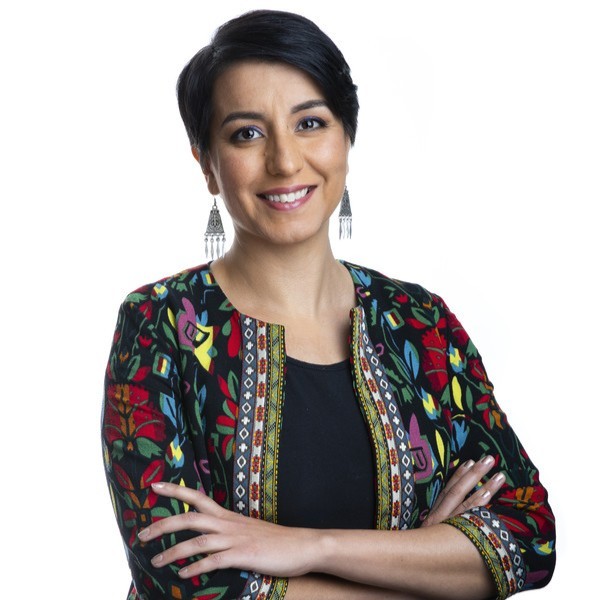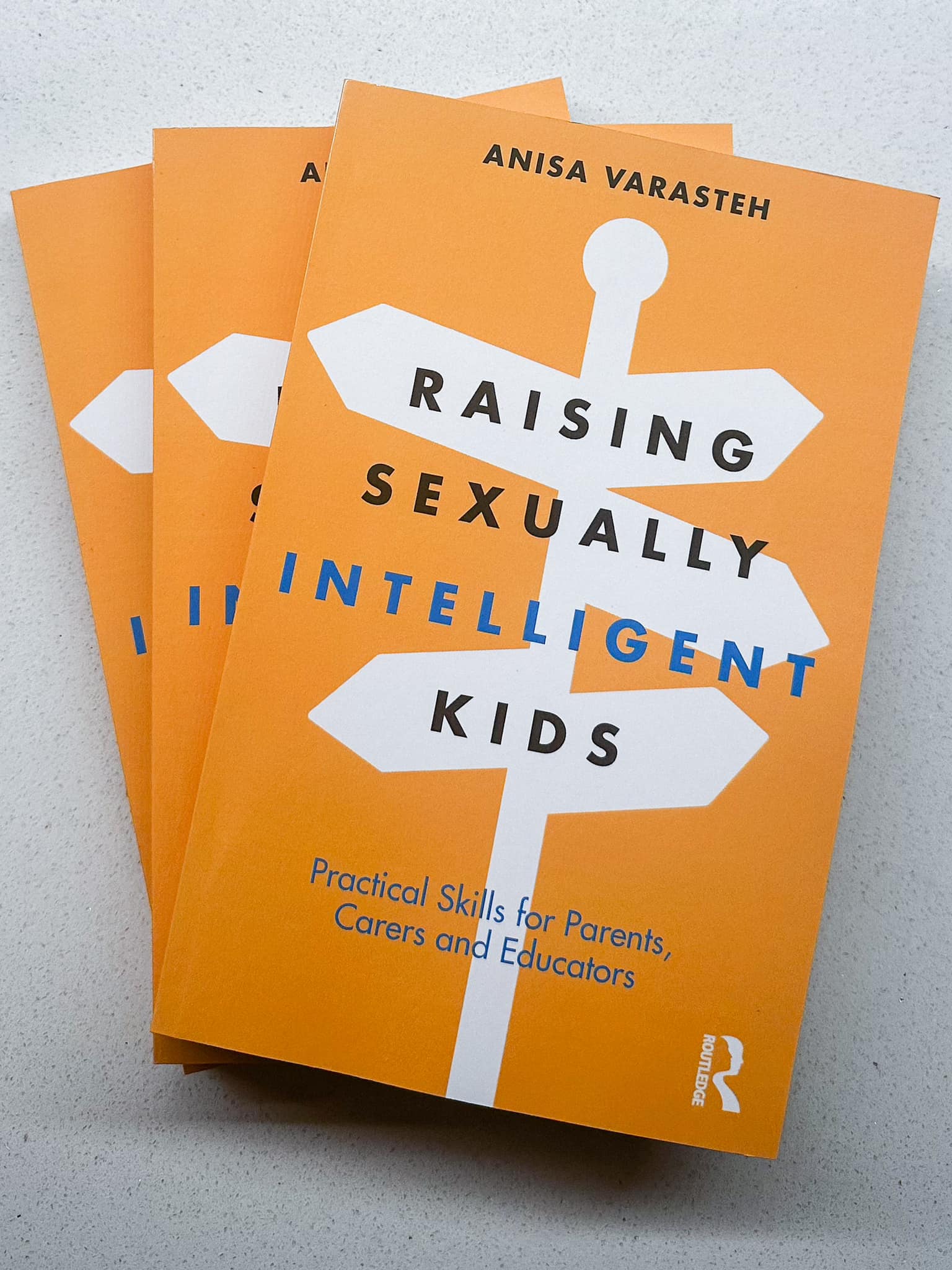The mums in the Adelady office all admit there’s been many-a-time when our kids have come to us with those (often awkward) questions about sex and we haven’t responded in the most, let’s say, ‘adult’ way. I’ll be the first to admit there were occasions where I’ve either blatantly changed the subject, or simply found myself in a (very mature) case of the giggles when those particular questions have been fired at me!
Let’s face it — it can be both confronting AND funny as our kids start to dig a little deeper in relation to sex. I’ll never forget the look on my kids’ faces when I finally told them ‘specifically’ how they were made. From memory, my daughter’s response was, ‘You did that? My life is over.’ Hahaha!

The thing is, awkwardness aside, it’s actually REALLY important for our kids to have a healthy attitude towards sex and relationships and receive age appropriate knowledge and guidance as they navigate through their teens and beyond. And although denial is an easy place to sit, with the often detrimental online world so accessible these days, we need to be on the front foot now more than ever. SEND HELP!!!
Well friends, help is here! Anisa Varastech is an Adelaide based Clinical Sexologist who’s written a book called ‘Raising Sexually Intelligent Kids’. In her book, Anisa teaches the foundations of a comprehensive sexuality education for children and teenagers and answers the most common questions young people have about sex. It outlines key topics for discussion and the skills that children need to develop to make healthy decisions about their sexuality.

Anisa Varastech
Below, Anisa has highlighted some important tips that we as parents can adopt when our children show curiosity about sex. For a more comprehensive read, grab yourself a copy of her book here.(unsure which site to link)
Over to you Anisa!
Tips for Responding to Children’s Sexual Exploration
As parents, it’s not uncommon to feel uncertain when your child shows signs of sexual curiosity or engages in behaviours that make you uncomfortable. Watching them play “doctors” with friends or discovering that your teen has been watching pornography can be tricky situations to navigate. However, it’s crucial to handle these moments with sensitivity and open communication. Here are some tips to help you respond effectively:
- Reflect on Your Discomfort: Take a moment to reflect on what exactly is making you uncomfortable. More often than not, a young person’s curiosity and exploration are developmentally typical and healthy. It’s essential to recognize that any discomfort you feel may stem from a lack of knowledge or misconceptions. Avoid reacting negatively or punishing your child, as this can discourage their natural exploration, potentially leading to sexual behaviours you might wish to avoid.
- Knowledge is Power: Research has consistently shown that children who receive age-appropriate sex education at home and feel comfortable asking questions about sex tend to delay sexual activity compared to those who haven’t received such information. It’s important to equip your child with knowledge. Teach them correct anatomical terminology, help them understand the concepts of “okay” and “not-okay” touches, respect their boundaries, and educate them about the importance of consent.
- The “De-shame + Connect” Approach: When faced with tricky situations involving your child’s sexual curiosity, consider employing the “de-shame + connect” formula. This approach helps create an environment where your child can explore their questions and feelings without feeling shame.
For example, if you witness your child engaging in “doctor play” with their friends, you might say, “I noticed you were curious about your friend’s body. It’s perfectly normal to be curious about bodies, but we can’t ask others to show their genitals. However, we have books about bodies. Would you like to read them together?” This response de-shames the curiosity and connects with your child through an alternative learning opportunity.
Or if you discover your teen has been watching pornography, you can respond with, “It’s okay and healthy to be curious about sex. I can show you some reliable sex education websites where you can learn more about sex.” This approach acknowledges their curiosity and provides a safe avenue for gaining knowledge.

Image Credit :: Mindful Pathways
When your child asks a tricky question like, “How do snakes have sex?” you can reply with, “That’s a great question! I don’t know, but let’s find out together.” This response encourages a sense of exploration and open communication.
4. Verify Their Understanding: If your child or young person asks about a specific sexual act or the typical question: “where do babies come from?” it’s important not to jump to conclusions or react with alarm. Sometimes, seemingly sexual questions may stem from non-sexual curiosity. For example, when a child asks, “Where did I come from?” they might be referring to the hospital of their birth (true story!).

Image Credit :: The Talk Institute
So, when a 13 year old asks something like “what is anal sex?” respond by asking, “what do you already know about it?” This approach provides context and helps you gauge if they’ve been exposed to pornography.
5. Understand Developmental Variations: Recognise that there is a spectrum of developmentally typical questions and behaviours when it comes to sexual curiosity. To determine whether a child’s information or questions are concerning, you can refer to the book ‘Raising Sexually Intelligent Kids.’ This resource can help you differentiate between developmentally typical behaviours and questions and those that might be concerning and need further attention.
6. Buy Time Gracefully: In instances where you’re unsure how to respond immediately, it’s perfectly ok to say, “I don’t know, but I can find out for you, or let’s find out together.” This approach buys you time to gather information and respond in a more informed manner, showing your commitment to addressing their curiosity.
7. Create a Supportive Environment: Always honour your child approaching you with their questions. Avoid shaming or expressing shock or anger, as such reactions can deter them from seeking guidance in the future. By creating a supportive and understanding atmosphere, you can help your child navigate their curiosity and development with confidence.

By adopting these tips and embracing your child’s curiosity with patience and understanding, you can foster a healthy attitude toward sex and relationships, ensuring they have the knowledge and guidance they need as they navigate their journey into adulthood.
Always consult a professional to see what’s right for you and your family.








